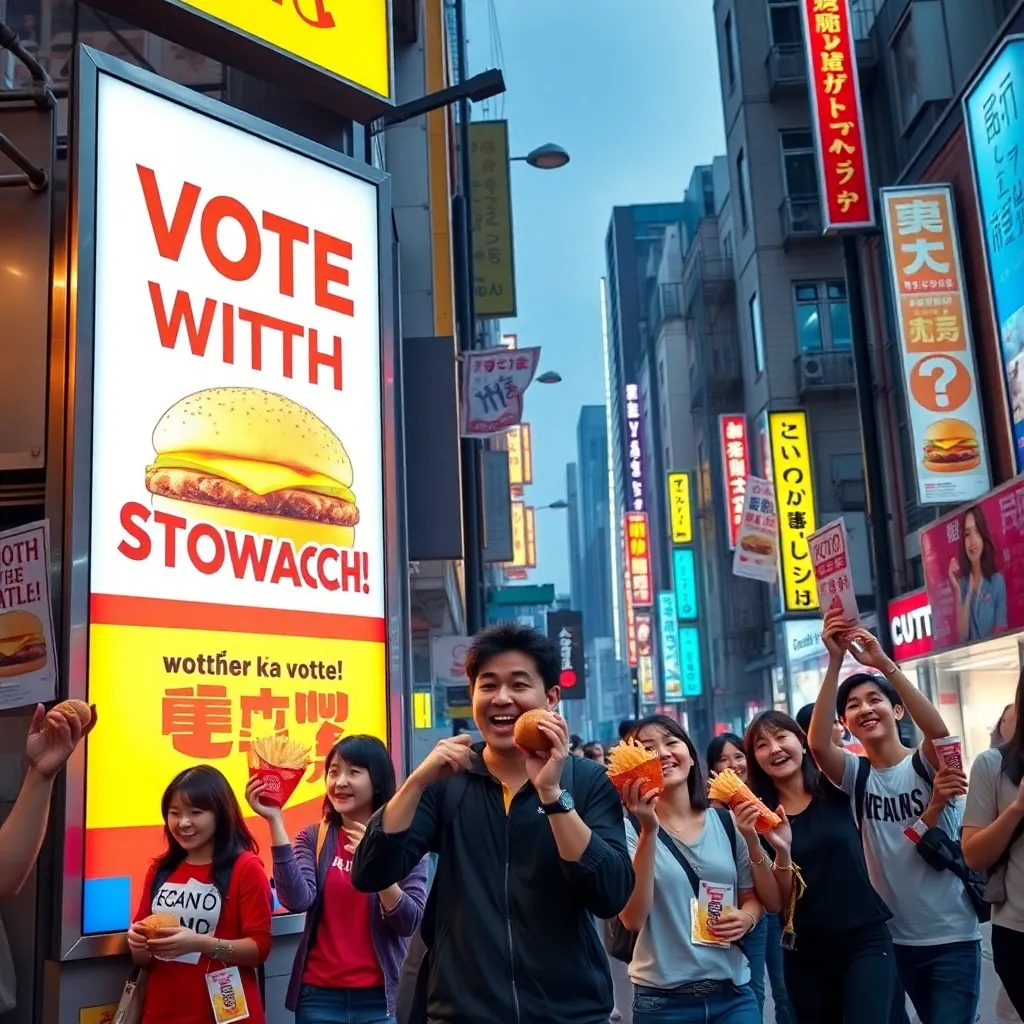When Fast Food Meets Political Fast Tracking: A Recipe for Disaster
Tokyo, Japan - In an unusual twist of fate, Prime Minister Shigeru Ishiba’s recent political maneuvering has not only sent shockwaves through the political landscape but has also inadvertently turned the spotlight on the culinary world, particularly the fast food industry. The intertwining of politics and burgers may seem bizarre, but in Japan, it’s a recipe with unexpected layers of complexity.
The Political Gamble
In a bold move that many political analysts are calling a desperate gamble, PM Ishiba announced a snap election despite clear signs of voter apathy and dismally low approval ratings. The attempt to rally public support backfired spectacularly, leaving his party in a state of bewilderment and the nation in a collective shrug. It was as if he had tried to win over an audience by showing up to a rock concert in a tuxedo: ill-timed and painfully out of touch.
As the prime minister was busy trying to engage the electorate, news broke that Japan’s favorite fast-food giant had tested beef patties for bacteria and found them squeaky clean. The timing couldn’t have been worse for Ishiba, whose political fate now hung in the balance alongside the juicy patties of a Big Burger.
A Nation Distracted by Burgers
While Ishiba was facing the music, the fast food chain capitalized on its newfound fame. Billboards across Tokyo flaunted slogans like “No Bacteria, Just Politics!” and “Vote with Your Stomach!” The advertising campaign went viral, overshadowing the prime minister’s electoral blunder. Japan’s youth, who were previously uninterested in politics, found themselves more engaged by the prospect of a free burger with every vote cast in favor of Ishiba’s rival, who had cleverly partnered with the fast-food chain.
A Polling Debacle
With the election looming, polls showed that the public’s appetite for change was insatiable, and not for the prime minister’s policies. Voters were more inclined to complain about their burger toppings than to discuss national issues. One disgruntled voter summed it up: “I’m more concerned about whether my fries are crispy than who’s leading the country.”
The Fast Food Backlash
Amidst the political chaos, social media erupted with memes featuring Ishiba’s face superimposed on various fast food items, with captions like “When your political career is as robust as a soggy bun.” The prime minister, who once boasted of his strategic acumen, became the target of ridicule, with hashtags like #BurgerPolitics and #FryThePM trending.
Protectionism on the Menu
As if the political landscape wasn’t spicy enough, Donald Trump’s recent calls for sweeping tariffs on imports began to seep into the conversation. Japanese netizens humorously questioned whether Ishiba would impose a “beef tariff” to protect domestic burger joints from foreign competition, essentially creating a fast food trade war. One Twitter user quipped, “If we can’t have fair elections, at least let’s have fair fries!”
The Inevitable Snap Election
With the election date set and the nation distracted by culinary delights, Ishiba decided to double down and stick to his guns, insisting that the election was necessary for Japan’s future. However, the atmosphere was more akin to a food festival than a serious political event. Campaign rallies turned into burger-eating contests, with candidates vying to outdo each other in who could down the most patties while discussing economic policies.
The Final Countdown
As Japan approached election day, Ishiba’s party was faced with an unexpected dilemma: how do you rally a nation that’s more excited about fast food than political reform? The final days of the campaign were filled with promotional events at burger joints, where voters were promised free meals in exchange for their support. It was a desperate bid that seemed to scream, “Please! Just vote for me, I’ll throw in a side of fries!”
Aftermath and Reflection
After the snap election, which many expected to be a nail-biter but ultimately resembled a fast food drive-thru line, the results were in. Voter turnout was shockingly low, with many choosing to stay home and binge-watch cooking shows rather than engage in the political process. Ishiba’s gamble had not only backfired; it had left him and his party in a state of culinary crisis.
In the wake of the election, political analysts are left pondering how a simple beef patty could overshadow a national leader’s fate. Meanwhile, Ishiba has announced plans to shift his focus, considering a career as a fast food consultant, where he hopes to combine his political savvy with burger-flipping skills.
Conclusion: The Unlikely Lessons
Japan’s political landscape has shown us that sometimes, the most serious matters can be overshadowed by the absurdity of life and the allure of a good burger. As citizens continue to grapple with their political responsibilities, they will also enjoy their fast food, proving once again that in the grand scheme of things, everyone is just trying to find their perfect combo meal—political or otherwise.
In the end, perhaps Ishiba’s greatest legacy will be reminding us all to hold our burgers tight and our politicians closer, but not too close, lest they turn out to be a little undercooked.
